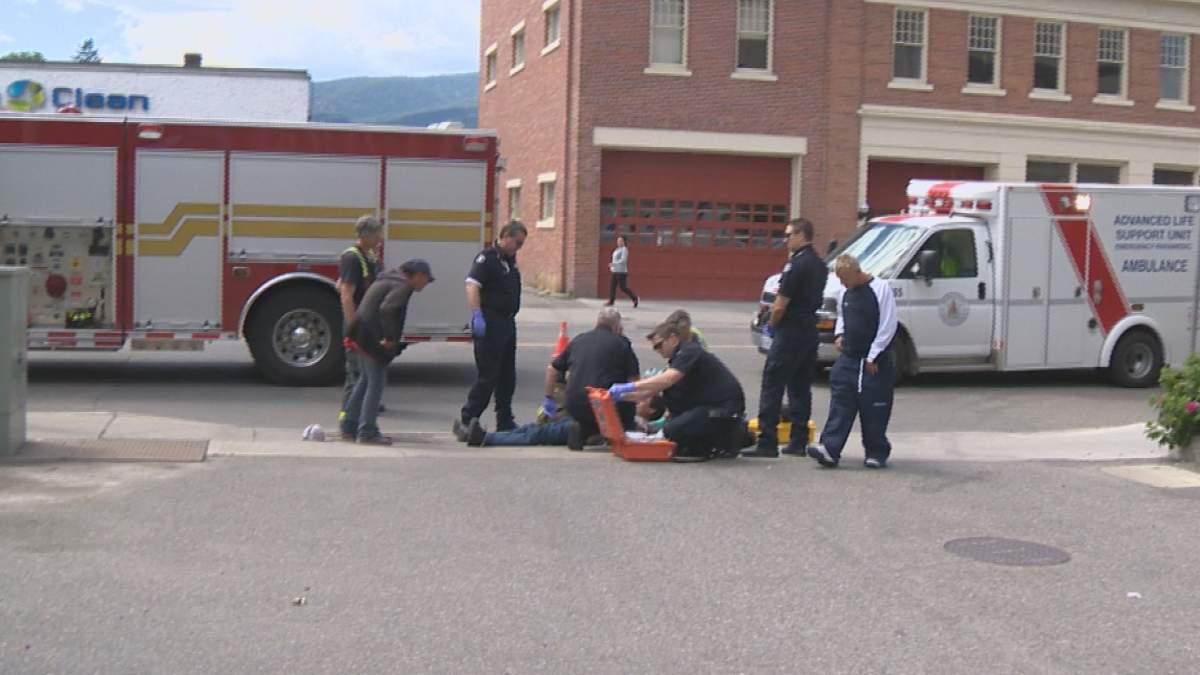Disturbing new data released by the BC Coroners Service shows B.C. recorded the highest-ever monthly total for suspected drug overdose deaths in May, including a significant spike in the Interior Health region.

Province-wide, 170 people lost their lives to an illicit drug overdose in May, which surpasses the previous high of 161 deaths in December 2016.
In the Interior Health region, 24 people died in May, an 84 per cent increase over the same month last year (13). It’s the highest single-month death toll since March 2019.
“It is both sad and deeply frustrating to see the number of illicit drug deaths reach a new high in B.C. four years after the declaration of a public health emergency,” said chief coroner Lisa Lapointe.
Health officials say the drug supply is becoming increasingly unpredictable and highly toxic due to border closures and travel restrictions related to the COVID-19 pandemic.

“Unemployment, social isolation, declining mental health and increased alcohol and substance use are also the reality for so many right now,” said Judy Darcy, minister of mental health and addictions.

Get daily National news
Reporting by Global Okanagan further reveals that the slow roll out of ‘safe supply’ in small B.C. communities combined with a ‘sudden windfall’ of CERB cash is refueling the crisis in the Interior.
Daryl Meyers, executive director of Pathways Addictions Resource Centre in Penticton, B.C., said the health authority should encourage more doctors and nurse practitioners to prescribe chronic drug users with a clean supply of narcotics, as seen in larger urban centres.
B.C. is the first province in the country to introduce clinical guidance for health-care providers to prescribe pharmaceutical-grade controlled substances to illicit drug users.
“We know that in Penticton, the majority of overdoses here are young men living alone and those people would be great candidates for having a clean drug supply,” said Meyers.

Dr. Silvina Mema, medical health officer with the Interior Health Authority (IHA), told Global News that about “a dozen” physicians are involved with prescribed supply, and that the health authority is recruiting more health care professionals to take part.
There is also a tidal wave of government money being funneled into the illicit drug market.
Bob Hughes, the executive director of Ask Wellness in Kamloops, said some clients living in social housing, who are already receiving provincial income supplements, filed for CERB and are receiving it even though they don’t qualify.
The emergency financial aid was designed for people out of work due to the pandemic, not those already on income assistance.
“We’ve seen in our buildings where people are receiving this amount of money and it’s translating into an abundance of drugs and alcohol,” Hughes said.
“It is just fueling further despair and trauma on our streets,” he said.
There have been 554 illicit drug deaths to date in 2020 in British Columbia.

To learn more about how to mitigate the risk of an overdose amid COVID-19, click here.
To find a drug checking location near you, click here.








Comments
Want to discuss? Please read our Commenting Policy first.